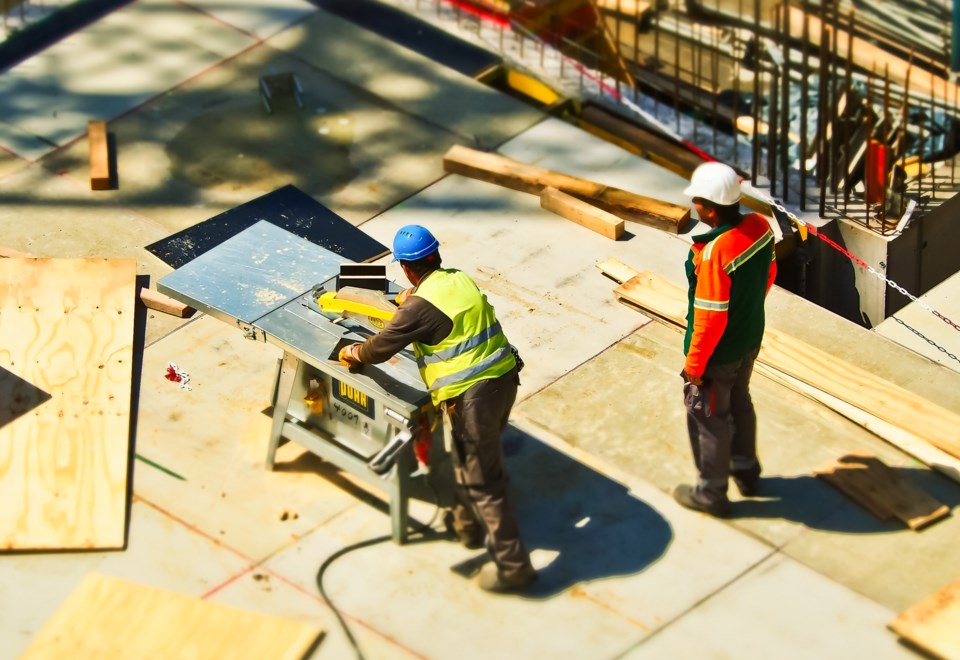While the cost impact on new home builds remains relatively the same as changes to development charges come into effect, there is potential to demand growth pay a larger share in the near future, city council heard on Wednesday evening.
Those potential new fees, however, won’t cover the cost of growth currently being subsidized by city taxpayers.
“We’re getting a little bit closer,” commented treasurer Tara Baker during a public meeting, referring to closing the gap between actual costs and collected development charges. “We’re charging the full amount that is allowed.”
Development charges contribute to a wide range of city infrastructure costs related to policing, fire services, wastewater treatment, recreation and more. They’re charged on a per-unit basis for residential and by the square metre for new, non-residential construction within the city, just as in other municipalities.
A couple of major, provincially-legislated changes are slated to come into effect in September which, according to consultant Greg Scandlin of Watson & Associates, essentially cancel each other out.
Municipalities will no longer be allowed to charge for parking services among their fees, but a mandatory 10 per cent deduction for “soft costs” such as library services, recreation and waste diversion will be eliminated.
Responding to a question from Mayor Cam Guthrie, Greg Clark, the city’s manager of financial strategy and long-term planning, explained removal of the mandatory deduction could result in an additional $1.7 million in development charges being applied to the cost of the new central library, with another $6 million going toward the South End Recreation Centre.
The library project was approved last year with a $62 million budget. Council approved the new recreation centre and its $80 million price tag at that same meeting.
If the proposed city changes are approved, residential construction would see a net 0.3 per cent drop in development charges, while non-residential builds would see a four per cent decrease, explains a staff report.
Eliminating the parking service fee will lessen local DCs by about $1,316 per single detached home and $6.84 per square metre of non-residential construction.
However, if the proposed city charges are implemented, much of that lost revenue will be recouped – about $1,206 per single detached residential unit and $1.26 per square metre for non-residential construction.
City council is expected to formally consider bylaw changes on Dec. 13. Wednesday’s meeting was held to gather public input on the potential changes.
The only delegate on the matter was Susan Watson, who urged council to collect every penny it could from developers to help cover the cost of growth and keep it off the backs of taxpayers, which are paying 20 to 25 per cent.
“It will have a direct impact on the property tax discussion you will be having soon,” she said, alluding to upcoming 2022/2023 city budget deliberations.
With rising housing prices, Watson said, “there’s more than enough room for developers to absorb (proposed fee increases) … not pass it along to the homebuyer and still enjoy a healthy profit margin.”
Responding later to that idea, Baker explained the city is charging as much as it’s legislatively allowed at the moment. However, additional fees may soon be applied that close the gap between costs and collections.
The city’s parkland dedication bylaw, which sees developers contribute land or cash in lieu, is currently under review. A report and recommendations to council are expected in the third quarter of next year.
As is a background study on potential implementation of a community benefit charge is slated to begin shortly, with findings presented to council around the same time as the parkland dedication bylaw report.
The provincial government recently approved the collection of community benefit charges for new construction.
A comprehensive development charges study is also on tap as the city prepares for provincially-mandated growth in the coming years. By 2051, Guelph’s population is expected to reach 203,000.
